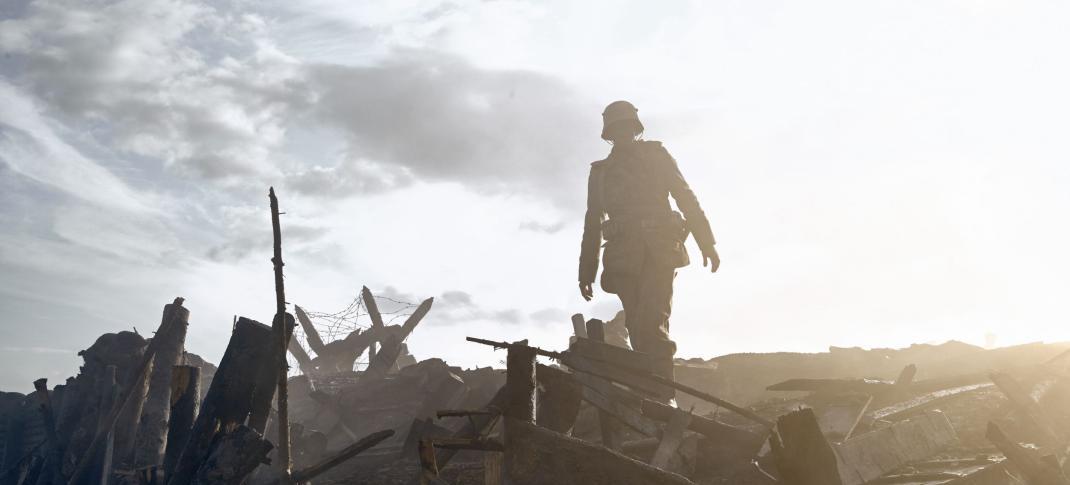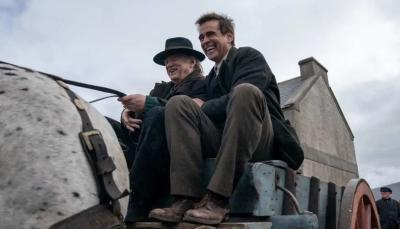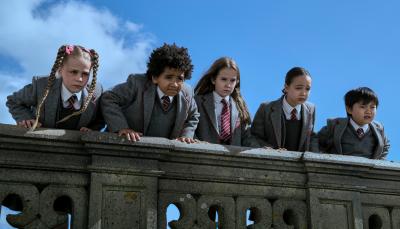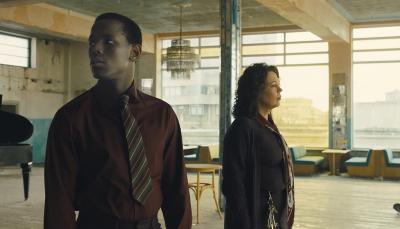Everything You Need to Know Before the 2023 BAFTAs

A battlefield still from Netflix's 'All Quiet On the Western Front'
©Reiner Bajo
We’re days away from the BAFTAs, where the highest order of British talent, critics, and industry members will reveal their picks for the best films, performances, and craft over the last 12 months and what looks like a fairly standard array of nominations for this awards season is actually loaded with a whole lot of backstory. You’ll notice from a cursory read of any awards punditry that, in terms of the precursors to the all-important Oscars, the BAFTAs are up there with the Screen Actors Guild awards as the most influential and revealing for what the Academy will pick. Often the awards for acting match the Oscars exactly, even though since the new millennium.
However, the BAFTA Best Film award and the Oscar for Best Picture have coincided only nine times, so it’s not certain the former will predict the latter. But even engaging with this mindset reveals a problem with BAFTA coverage and nominations — they are largely only regarded as another step on the road towards a more important ceremony.
It was welcome then that the last few years have seen a profound change-up in how the nominees are calculated. A few years of all-white nominees caused a groundswell in criticism targeted at the British Academy’s voting membership, which presumably has entrenched some of Britain’s famous elitist classism (inevitable, as the BAFTA president is first in line to the throne). A series of amendments to address this were adopted: the membership was to go through unconscious bias training, half the directing nominees in the 20-person longlist were to be female, and latter-stage voting could only be carried out if all the nominated films had been watched (first used in 2022).
The impact of this is clear on the last two years of nominees; the new process granted performers and filmmakers of smaller budgeted films with smaller budgeted campaigns an equal footing with the heavily campaigned picks from major studios. Voters were watching films they wouldn’t have seen in previous years, resulting in a slew of nominations and even wins for smaller and international talent.
The nominees from the last two years have also seen a greater impact from a specialist jury system that had greater sway over the final shortlists, helping cut through the deafening momentum that certain favorites had built on the road to the Oscars. What choices came from the juries and which came from the general membership is unclear, and it also should be pointed out that the last two ceremonies were held in peak pandemic time, meaning there would always be a stress on smaller, indie films than normal.
Still, it gave the BAFTAs an edge, celebrating a wider, cooler, and more diverse selection of what films resonated year-round. There was no way, even in an already British-favouring landscape, that last year’s winner Joanna Scanlan would get a foot in the door for her turn in After Love in the hotly contested Best Actress category without studio reach being nerfed by the new nominee process.
Congrats to our Outstanding British Film nominees! 👏
— BAFTA (@BAFTA) January 19, 2023
🎬 AFTERSUN
🎬 THE BANSHEES OF INISHERIN
🎬 BRIAN AND CHARLES
🎬 EMPIRE OF LIGHT
🎬 GOOD LUCK TO YOU, LEO GRANDE
🎬 LIVING
🎬 ROALD DAHL’S MATILDA THE MUSICAL
🎬 SEE HOW THEY RUN
🎬 THE SWIMMERS
🎬 THE WONDER #EEBAFTAs pic.twitter.com/TubCcyzXNz
This year, alas, things look to be regressing. There was a backlash within BAFTA’s voting membership that jury picks were being favored over their choices, so the jury powers were curtailed, and for the 2023 ceremony, half the nominees (6 in total) will come each from the juries and membership. Correcting systemic issues takes time, of course, but it’s taken a remarkably short amount of time for the nominations to resemble the safest of Oscar predictions.
The Academy nominations for 2023 are pretty populist in tone, something reflected in the BAFTA choices because, unfortunately, we’re back chasing the coattails of the Oscars. The favorites for each acting category all make appearances, and there’s not much love for the type of exemplary but outsider performances we saw in last year’s race — like Scanlan, Renate Reinsve for The Worst Person In The World, and Licorice Pizza's Alana Haim in the Best Actress category.
Some British darlings have been unfairly left out – Aftersun scooped a Best Actor nod, but apart from that, was relegated to the overcrowded Best British Film, where its shine is dimmed by association with perfectly adequate but distinctly less challenging fare like Good Luck to You, Leo Grande or Living. Even though every nomination in the Best British Debut was incredibly well-deserved, Aftersun is the heavy favorite and was expected to pick up more noms in other categories.
A lot of Irish on and off-screen talent have been honored, but this doesn’t mark the BAFTAs out as unique — the Academy gave a record-breaking 14 noms to Ireland as well. Of the 24 actors nominated, only one featured in a film not in the English language. Albert Schuch gave a stand-out performance in All Quiet in the Western Front, but with its staggering 14 nominations, it’s a clear case of Brits overinflating the hype of a well-made war film.
Thankfully, the BAFTA nominations look better with a bit of perspective — in the shape of the Oscar nominations. They managed to nominate the Black female talent that the Academy shut out, like Danielle Deadwyler’s unmissable performance in Till and Gina Prince-Bythewood in the directing race. Also fairly treated were Asian talent, like Dolly De Leon’s stand-out role in Triangle of Sadness (one of the few elements worth legitimate praise), as well as director Park Chan-wook’s efforts in Decision to Leave, even if BAFTA continued the trend of only celebrating the non-acting talent in Asian cinema.
It looks like there’s more separating the Oscar and BAFTA noms than initially thought, even if this year is a clear step back from the unconventional but welcome state it was in last year. Let’s hope it’s a case of two steps forward, one step back — and we are making progress in forging a wholly independent identity for British awards.
The 76th British Academy Film Awards (aka the 2023 EE BAFTAs) will be hosted by Richard E. Grant and feature a tribute to the late Queen Elizabeth II by Helen Mirren. The event will be broadcast live from the Southbank Centre’s Royal Festival Hall on Sunday, February 19, 2023, beginning at 7 p.m. BT (2 p.m. ET/11 a.m. PT) on BBC One in the U.K. and will stream on BritBox in the U.S.




